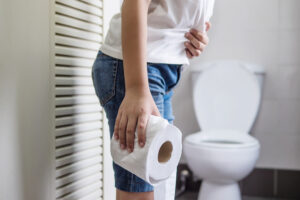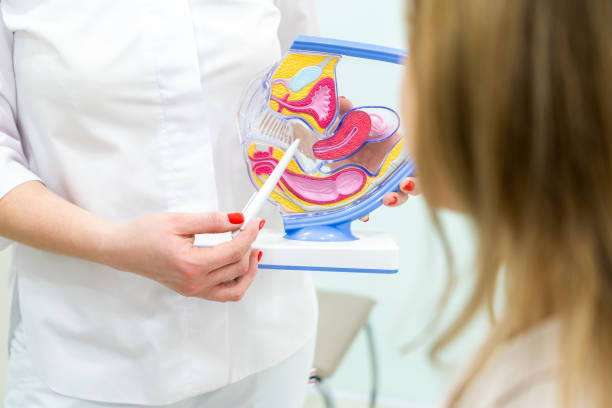A condition in which a person cannot control his/her urine against his/her will. urinary incontinence It is called. Bladder muscle weakness, nervous system problems, and bladder infections cause this problem. This condition can interfere with daily activities and cause embarrassment or discomfort. It can affect various age groups and can be managed with appropriate treatment methods.
What are the causes of urinary incontinence?
 The pelvic floor muscles support the bladder and urethra. If these muscles become weak, the risk may increase. Factors such as pregnancy, childbirth, heavy lifting, obesity and aging can cause these muscles to weaken. Chronic cough, especially in people who smoke, can weaken the pelvic floor muscles and increase the risk. Pregnancy and childbirth, including vaginal birth and cesarean section, can weaken the pelvic floor muscles. It may increase the risk.
The pelvic floor muscles support the bladder and urethra. If these muscles become weak, the risk may increase. Factors such as pregnancy, childbirth, heavy lifting, obesity and aging can cause these muscles to weaken. Chronic cough, especially in people who smoke, can weaken the pelvic floor muscles and increase the risk. Pregnancy and childbirth, including vaginal birth and cesarean section, can weaken the pelvic floor muscles. It may increase the risk.
During menopause, hormonal changes can affect the pelvic floor muscles. Problems with the nervous system can affect bladder control. This may cause the problem. These include conditions such as stroke, multiple sclerosis, and Parkinson's disease. Urinary tract infection and other bladder infections cause this problem. Structural and functional disorders related to the bladder or urethra may also cause the condition.
Constant constipation urinary incontinence It can increase your risk of pelvic floor problems because constipation can cause the pelvic floor muscles to weaken. Some medications, especially certain medical treatments such as blood pressure medications and antidepressants, increase the risk. Being overweight can weaken the pelvic floor muscles and increase the risk. A person experiencing this problem should consult a doctor to evaluate this condition and receive appropriate treatment. Appropriate treatment may vary depending on the underlying causes.
Symptoms of Urinary Incontinence
The person may have to urinate more frequently than usual. It may manifest itself with the leakage of small amounts of urine as a result of the person's inability to hold urine. Person, urinary incontinence He or she may suddenly become incontinent before feeling the urge to urinate. The person may experience frequent urinary incontinence during daily activities. The person may not be able to hold his/her urine while sleeping and therefore the bed may get wet. Even after leaving the toilet, there may be situations where urine leaks drop by drop.
People who experience this problem may have difficulty holding their urine and may experience a feeling of urinary urgency. For this reason, the person may experience stress and this may negatively affect the quality of daily life. If symptoms of urinary incontinence If you are experiencing it, it is important to consult a doctor. The specialist can determine the appropriate treatment options for you. When necessary, he can determine the underlying cause by performing further examinations.
Urinary Incontinence Treatment Methods
 Exercises that strengthen the pelvic floor muscles may improve the condition. These exercises strengthen the pelvic floor muscles and increase control. Behavioral therapies are used to regulate urinary habits and keep the amount of urine under control. Kegel exercises can be done to strengthen the pelvic floor muscles and increase control. In some cases, medications are prescribed to treat specific symptoms caused by the problem. These medications may increase the ability to retain urine. It can reduce the risk of incontinence by relaxing the bladder muscles. Particularly in women, hormone treatments can reduce the symptoms caused by the condition.
Exercises that strengthen the pelvic floor muscles may improve the condition. These exercises strengthen the pelvic floor muscles and increase control. Behavioral therapies are used to regulate urinary habits and keep the amount of urine under control. Kegel exercises can be done to strengthen the pelvic floor muscles and increase control. In some cases, medications are prescribed to treat specific symptoms caused by the problem. These medications may increase the ability to retain urine. It can reduce the risk of incontinence by relaxing the bladder muscles. Particularly in women, hormone treatments can reduce the symptoms caused by the condition.
Lack of estrogen hormone urinary incontinence could be the reason. In some cases, especially severe cases, surgical treatment may be required. Surgical intervention is performed to correct conditions such as pelvic organ prolapse or urinary tract narrowing. Intracutaneous injections are given to strengthen the muscles around the bladder. urinary incontinence The most effective method of treatment depends on the person's specific condition and cause. Therefore, it is important to consult a doctor and create a personalized treatment plan.






